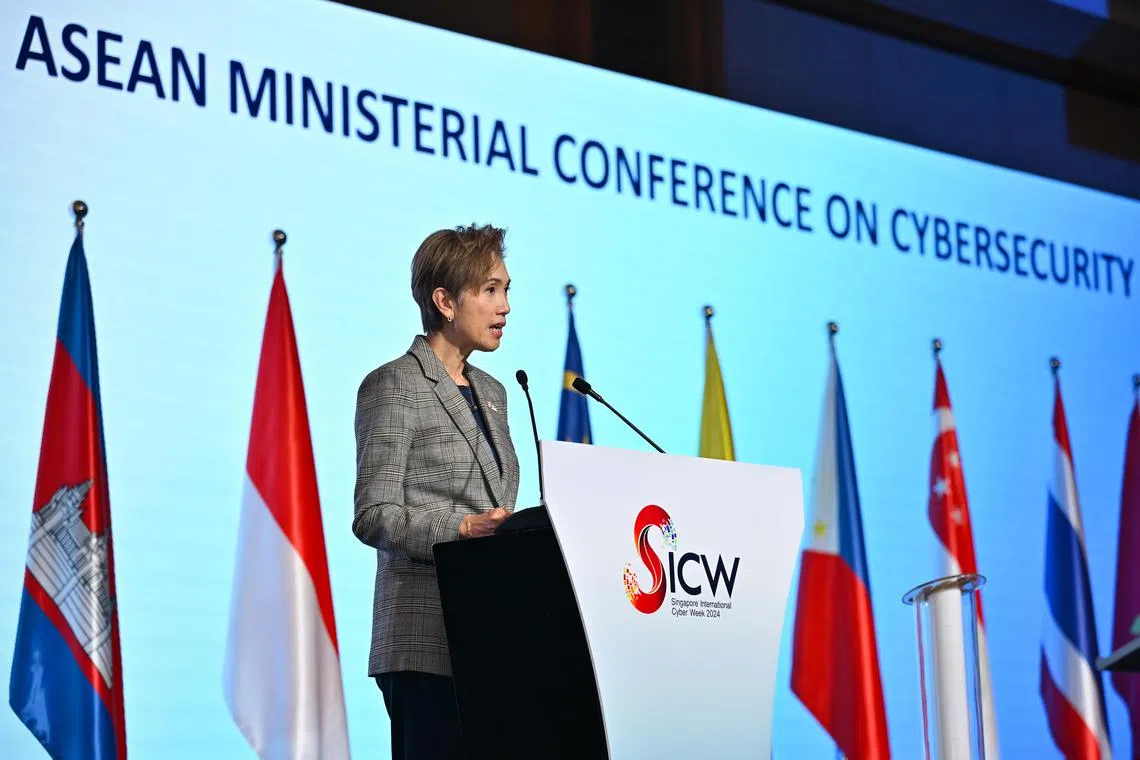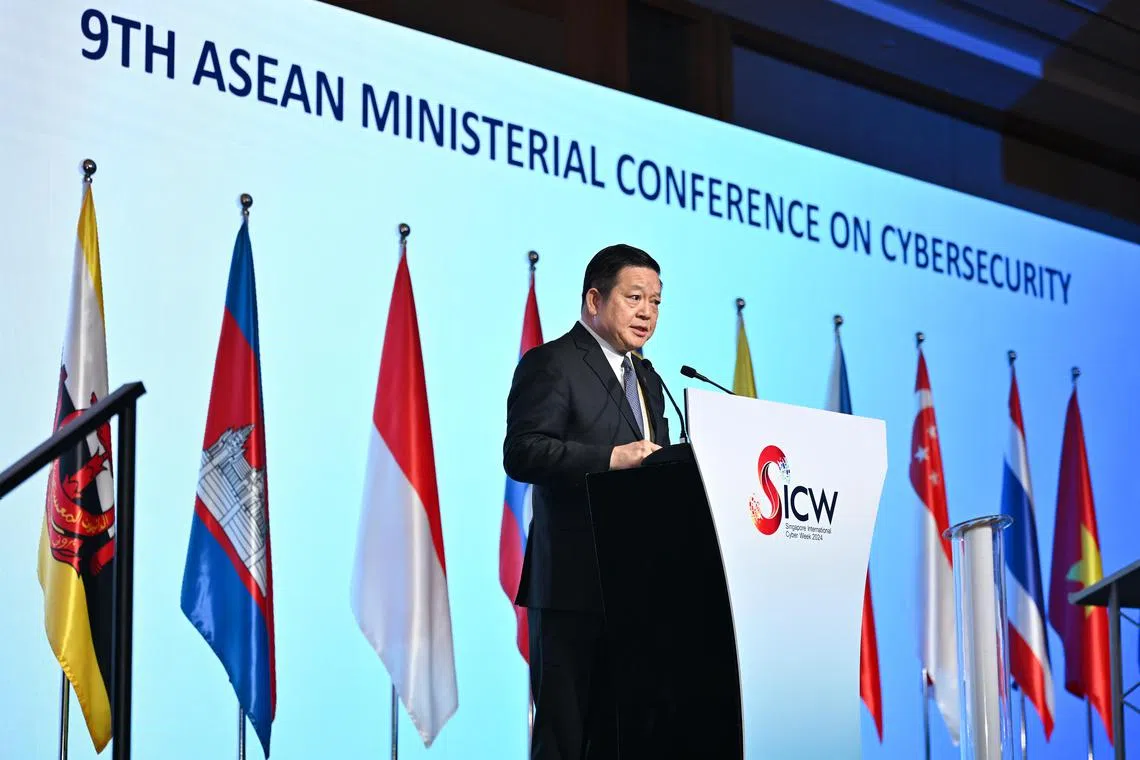Asean emergency response team comes into force to better combat regional cyber threats
Sign up now: Get ST's newsletters delivered to your inbox

The response team will go some way to improve cyber-security responses across Asean, said Minister of Digital Development and Information Josephine Teo at the Asean Ministerial Conference on Cybersecurity on Oct 16.
ST PHOTO: LIM YAOHUI
SINGAPORE – A swift exchange of intelligence among Asean countries to keep essential services running during a global cyber attack can be expected with the launch of a response team in Singapore.
Operationalised on Oct 16, the Asean Regional Computer Emergency Response Team will go some way to improve cyber-security responses across Asean nations, said Singapore’s Digital Development and Information Minister Josephine Teo.
For instance, bad actors could target critical services like energy networks, supermarkets and suppliers, and weaknesses in a digital system, which could have effects that span beyond one country.
The team, the fruit of talks since 2020, will be located at the Asean-Singapore Cybersecurity Centre of Excellence in City Hall. It will be led by Malaysia as its first overall coordinator, a role which rotates every two years among the 10 member states.
Singapore has allocated $10 million over the next decade to support the team’s operations. The team will also support collaborations between industry and academia, and conduct cyber exercises.
Citing the growing number of digital services for attackers to target, Mrs Teo said on Oct 16: “While these technologies are very convenient and easy to use, they have also greatly expanded the attack surface area of our respective states.”
The digital economy in Asean is set to hit US$1 trillion (S$1.31 trillion) by 2030. The region has a population of 700 million people, many of whom are online-savvy and fast to adopt the latest tech.
“However, if we stand together, we will be able to strengthen our cyber defences and safeguard our digital future,” said Mrs Teo, who is also Minister-in-charge of Smart Nation and Cybersecurity.
She was speaking at the Ninth Asean Ministerial Conference on Cybersecurity, a gathering of officials in the region who oversee technology. It was held during the Singapore International Cyber Week at the Sands Expo and Convention Centre.
Dr Kao Kim Hourn, secretary-general of Asean, called for more collaboration to counter the expected rise in cyber threats. He listed attacks in the region, including a ransomware one in July that crippled Indonesian government services
Many Asean nations, including Singapore, are also grappling with scams, he noted. The city-state faces a worsening scam situation

Dr Kao Kim Hourn, secretary-general of Asean, speaking during the opening ceremony of the Asean Ministerial Conference on Cybersecurity at Sands Expo and Convention Centre on Oct 16.
ST PHOTO: LIM YAOHUI
Dr Kao said: “(These events) underscore the urgent need for coordinated and collective action to mitigate the risks and protect our economies and society from cyber crime.”
He added: “It’s crucial not just for safeguarding critical infrastructure, but also for maintaining the trust of services.”
Malaysia, as the response team’s first overall coordinator, will be led by Dr Megat Zuhairy Megat Tajuddin, chief executive of the country’s National Cyber Security Agency.
The 10 participating Asean nations have also committed to adopt non-binding principles under the Asean Norms Implementation Checklist. The checklist aims to standardise how government agencies use information and communication technology platforms and how they can best work with other nations, said Mrs Teo.
The checklist is not available to the public.
“This is the first checklist of its kind,” she added. “We would be happy to share our experience with other countries in the implementation of these norms in support of global efforts towards an open, secure, stable, accessible, interoperable and peaceful cyberspace.”


